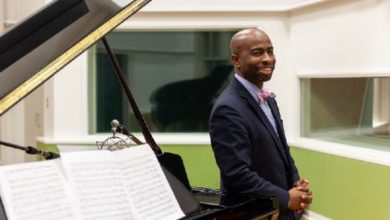The educational system needs to be redefined in the Caribbean

Over the last 25 years, the educational system in the Caribbean has been through multiple changes and reforms, the majority of them had a purpose to solve the problems the system is experiencing.
However, very few of those changes and reforms had the purpose to completely re-think the function of education in society and to highlight the purpose of education in the post-independent Caribbean society. Some of the reforms adopted through the time have been transformed in initiatives designed according to the lines promoted by donor agencies and other organisations.
But in order to better understand how education needs to be re-thought in the Caribbean, it is important to check the historical background.
The evolution of the educational system in the region was highly influenced by the fact that people were able to access higher levels of education since the onset of public education in the post Moyne Commission period. If it were to analyse the phenomenon in a historical perspective it can be said that the modernisation and extension of the educational system were made in a linear way. The progress in education followed the progress of the society, when the society experienced a development, education was one of the factors that facilitated it.
The universal primary education was one of the main factors in transitioning from a society based on plantation economy to more complex ways of production. With the move towards a service economy, the new educational standard implies a universal secondary education, because it has the role to provide the right human resource to successfully complete the transition. In order for the society to make the next step to an information economy, it is necessary for the society to progress to a tertiary education.
Caribbean education is influenced by international trends
The majority of post-colonial education reforms and changes have not included the colonial inheritance. The society has adopted an educational system based on a structural framework and organising principles that had as main goal to sort and classify students.
For example, we can analyse the progress of universal secondary education. In the past, the students had access to secondary education based on their performance and skills, and according to the number of available spaces. This means that the students with the highest scoring were the ones who got a chance to access secondary education. With the introduction of universal secondary education, all students have access to the secondary education system, but the society did not customise the system to make sure that it fits everyone. Many students have difficulties in reaching the standards of the secondary education system; therefore, the system is in high need for remediation. Nowadays, some of the students who want to keep up with the standards required by the secondary education get online tuition to improve their knowledge. The advent of the internet offered students a second chance to keep up with their colleagues and to perform in secondary school. In addition, the internet is the one that offered the Caribbean society access to the international trends of education.
A great part of the educational progress in the Caribbean was achieved with the help of international organisations like UNESCO that have promoted international educational trends and helped the society adopt and include them in their systems.

Why does the education system need redefinition?
There are multiple reasons why the educational system in the Caribbean requires upgrades.
- Fiddling with the system does not get the needed results
At a certain moment fiddling with the educational system simply no longer works. An education system functions similarly to an eco-system if you bring changes to one of its dimensions, all the other dimensions require upgrades and adjustments in order to function properly. For example, if a change is made to the curriculum the textbooks have to include that change, the teachers have to be trained to focus on the change, and the instructional methods have to be updated. There are times when a change in the curriculum even requires a refitting of the classroom to allow students to benefit of the redefinition of the educational system.
The present educational system needs to be changed in such a way to be transformed into a tool that facilitates social transformation and supports human empowerment.

- Education is considered the remedy for the problems the society is facing
Education is considered the cure for social problems, people are experiencing. The curriculum has reached a point where it cannot get other subjects, it is understandable that the demands of the society have changed and students need wider and more complex knowledge, but at the present point, the curriculum has reached its peak. At the present moment, the educational system is used as a tool to address social problems, and it is no question that it has a major role in solving these issues but it has to be redefined according to some relevant changes. The society cannot expect the educational system to be the one that solves all the problems. The teachers cannot be named the responsible ones for the social problems, and they cannot surrogate family education, welfare officers and other institutions.

- The education system is no longer effective
The reform in the Caribbean educational system was not adopted in a systemic manner, the problems in one sector lead to other problems in the other sectors. If the focus is not on the development of the child in the primary school, they will have a weak performance at the secondary school, and they will lack skills when they will attend the tertiary education. Even if the Caribbean government spent a lot of money in improving and redefining the educational system, the result was not the expected one and the performance levels did not increase. Students find school boring and they are switching their attention to other learning methods that bring them excitement. The new digital generation prefers online education because it meets their lifestyles and it makes the process fun and educational.





